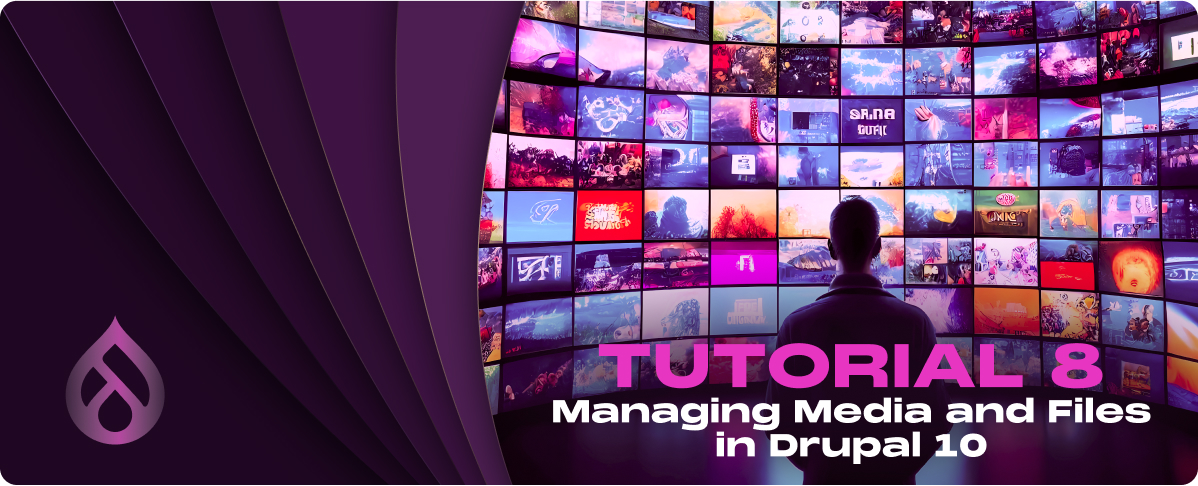What is Salesforce Marketing Cloud?
Salesforce Marketing Cloud is a comprehensive digital marketing suite that enables organizations to create and manage marketing relationships and campaigns with customers across multiple channels.
As a part of Salesforce’s suite of products, Marketing Cloud integrates deeply with other Salesforce applications, providing a unified approach to managing customer journeys. This platform is designed to help marketers personalize customer experiences, streamline communications, and improve customer engagement through data-driven insights.
Overview and Key Features
Salesforce Marketing Cloud offers a variety of tools and capabilities tailored to meet the diverse needs of modern marketers.
Key features of Marketing Cloud include:
- Journey Builder: Allows marketers to design and automate customer journeys across channels, guiding customers through a personalized experience based on their behavior and preferences.
- Email Studio: Provides robust email marketing capabilities, enabling users to create, send, and track email campaigns. It offers advanced segmentation, A/B testing, and comprehensive analytics to optimize email interactions.
- Social Studio: Helps manage social media strategies by allowing teams to listen to, engage with, and publish content on social platforms. It includes tools for social listening, content scheduling, and community management.
- Advertising Studio: Enables targeted advertising by syncing CRM data with digital advertising platforms to create personalized advertising experiences across Google, Facebook, LinkedIn, and other networks.
- Mobile Studio: Offers SMS, MMS, push notifications, and group messaging capabilities to reach customers on their mobile devices effectively.
- Web Personalization: Tools to create personalized web content that resonates with visitors based on their interactions and behaviors.
- Interaction Studio: Monitors and visualizes customer interactions in real-time, allowing marketers to deliver contextually relevant experiences during a customer’s journey.
- Data Management Platform (DMP): This platform collects and organizes data from various sources to create targeted marketing segments and provide insights for deeper personalization.
- Analytics Builder: Offers data analysis tools that help measure and optimize marketing efforts across channels.
Need for Salesforce Marketing Cloud
Challenges in Modern Marketing
Today’s marketing landscape is characterized by a number of complex challenges that require robust and versatile solutions.
These challenges include:
- Data Overload: Marketers often need help with the large volume of data generated from various channels. This makes it difficult to use this data effectively for targeted marketing strategies.
- Customer Expectations: Modern consumers expect personalized, consistent experiences across all channels. Meeting these expectations requires sophisticated tools that can manage and leverage customer data effectively.
- Channel Proliferation: With the rise of digital platforms, marketers must engage with customers across multiple channels (social, mobile, email, web, etc.). Coordinating these interactions to ensure a seamless customer experience is increasingly complex.
- Integration Issues: Many organizations use different tools for different marketing functions, leading to integration challenges that can hinder a unified view of customer interactions and efficiencies.
- Speed of Innovation: The rapid pace of technological change means marketers must continually adapt to new tools and techniques. Staying current can be resource-intensive and requires scalable solutions.
How Marketing Cloud Addresses These Challenges
Salesforce Marketing Cloud offers comprehensive solutions tailored to meet the evolving needs of modern marketers and overcome these challenges:
1. Unified Customer View
Marketing Cloud integrates data from various sources to provide a single view of the customer. This helps marketers deliver more personalized content and create consistent customer experiences across all touchpoints.
2. Cross-Channel Marketing
With tools like Journey Builder and Social Studio, Marketing Cloud enables marketers to create and manage cross-channel marketing campaigns from a single platform. This ensures cohesive communication strategies that engage customers effectively wherever they are.
3. Advanced Data Analytics
Features like Analytics Builder and DMP help marketers analyze big data to derive actionable insights, predict customer behavior, and make data-driven decisions that enhance campaign effectiveness.
5. Automated Personalization
Tools such as Email Studio and Web Personalization allow for automated, tailored communications based on customer behaviors and preferences, increasing engagement and conversion rates.
6. Scalability and Flexibility
Marketing Cloud scales to accommodate growth in data volume and campaign complexity without sacrificing performance. This flexibility ensures marketers can adapt to changes in the market landscape and customer behavior without switching platforms.
7. Integration Capabilities
Marketing Cloud can seamlessly integrate with other Salesforce products (such as Sales Cloud and Service Cloud) and external systems, providing a comprehensive ecosystem that enhances data flow and accessibility.
What Can You Do with Salesforce Marketing Cloud?
Data-driven Messaging
Salesforce Marketing Cloud leverages vast amounts of data to tailor communications specifically to individual customer preferences and behaviors. By integrating data from various sources, marketers can create highly personalized and relevant messages that resonate with each customer, increasing engagement and improving customer relationships.
Multi-channel Messaging
With Marketing Cloud, you can deliver consistent and coordinated messages across multiple channels such as email, social media, mobile apps, and websites. This capability ensures that customers receive a unified experience, no matter how or where they choose to interact with your brand, enhancing overall engagement and brand perception.
Dynamic Components
Utilize dynamic components within Salesforce Marketing Cloud to adapt your marketing campaigns in real-time based on customer interactions and behaviors. This adaptability allows marketers to respond quickly to changes in customer preferences or market conditions, ensuring campaigns remain relevant and effective.
Products in Salesforce Marketing Cloud
Here’s an overview of the core products and their primary functionalities:
1. Email Studio
The backbone for email marketing within Marketing Cloud. It provides tools to create, send, and track email campaigns. Features include sophisticated segmentation, dynamic content, and comprehensive analytics to measure campaign effectiveness.
2. Social Studio
This product manages your social media strategy, from posting and scheduling content across various social platforms to monitoring and engaging with users. It helps marketers understand social sentiment and trends, enabling responsive and targeted social media campaigns.
3. Mobile Studio
This product allows marketers to reach customers through SMS, MMS, push notifications, and group messages. Mobile Studio is important for campaigns that need to engage users directly on their mobile devices, offering features for geotargeting and automation based on mobile user behaviors.
4. Advertising Studio
This product integrates advertising with your marketing strategy across digital platforms like Google, Facebook, and Instagram. It leverages CRM data to create targeted, secure, and privacy-compliant advertising campaigns that align with broader marketing goals.
5. Journey Builder
This product enables marketers to design and automate customer journeys across channels and devices. This tool helps create personalized customer experiences at scale, with decision splits and timing controls to deliver the right message at the right moment.
6. Interaction Studio
This product visualizes and manages real-time customer experiences, allowing marketers to see how consumers are interacting with the brand across channels and devices and react with contextually relevant messages or offers.
7. Data Studio
A data sharing platform that helps marketers leverage data for deeper insights and segmentation. It enhances targeting by allowing the secure exchange of data within a marketplace environment.
8. Pardot
Designed specifically for B2B marketing automation, Pardot automates lead management and facilitates sales alignment with features like lead scoring, email marketing, and comprehensive lead nurturing capabilities.
Overview of Each Product's Functionality
- Email Studio: Tailor and automate email communications based on customer data and behaviors and analyze performance metrics to optimize strategies.
- Social Studio: Manage all social media interactions in one place, from publishing and scheduling to monitoring and analytics, ensuring consistent brand messaging.
- Mobile Studio: Engage customers with timely and location-based mobile messaging to enhance the immediacy of marketing communications.
- Advertising Studio: Use CRM data to create cohesive, cross-channel advertising campaigns that maintain message consistency and improve conversion rates.
- Journey Builder: Build complex, multi-stage journeys for different segments, testing and refining pathways based on customer responses and interactions.
- Interaction Studio: Capture and act on real-time customer actions, tailoring experiences dynamically to boost engagement and satisfaction.
- Data Studio: Leverage a secure environment to share high-quality data, enhancing the accuracy and effectiveness of targeted marketing efforts.
- Pardot: Streamline lead management processes in a B2B context, enhancing engagement through personalized, automated marketing communications.
Salesforce Marketing Cloud Benefits
1. Data Management
Salesforce Marketing Cloud excels in managing vast amounts of data from multiple sources, enabling marketers to create a unified view of each customer. This comprehensive data management supports deep segmentation and personalization across all marketing channels.
Features such as Data Studio and the integrated Customer Data Platform help refine data usage, ensuring marketers can more effectively target their audiences based on behaviors, preferences, and previous interactions.
2. Integration Capability
One of Salesforce Marketing Cloud’s strongest benefits is its ability to integrate seamlessly with other Salesforce products (such as Sales Cloud and Service Cloud) and external systems. This integration extends Marketing Cloud’s functionality and reach, allowing for a cohesive experience across sales, customer service, and marketing.
Integration with Salesforce CRM, for instance, provides real-time data updates, which are important for maintaining accurate and timely marketing communications.
3. Third-party Apps
Through Salesforce AppExchange, Marketing Cloud users can access a wide array of third-party applications that can further enhance the platform’s capabilities. These apps can introduce additional features, specialized analytics tools, or niche solutions tailored to specific industry needs. This openness to third-party integrations allows businesses to customize and extend their marketing capabilities exactly as needed.
4. Artificial Intelligence
Marketing Cloud incorporates Salesforce’s AI technology, Einstein AI, to bring advanced analytics and machine learning to the marketing domain. Einstein AI enables features like predictive scoring, which forecasts future customer behaviors, and segmentation, which identifies distinct groups within the customer base for more targeted marketing. Einstein AI powers automated content and engagement suggestions, optimizing campaign performance without manual intervention.
How Does the Salesforce Platform Deliver Power to Take Marketing Further?
The Salesforce Ecosystem's Role in Enhancing Marketing Efforts
1. Comprehensive Customer View
The ecosystem facilitates a holistic view of the customer by integrating data from various touchpoints. This unified perspective enables marketers to understand customer behaviors, preferences, and interactions across multiple channels, leading to more informed marketing strategies.
2. Data-Driven Insights
Leveraging Salesforce’s analytical tools’ collective power, marketers can extract valuable insights from complex data sets. These insights drive smarter, data-driven decisions that can significantly enhance campaign performance.
3. Collaboration Across Departments
Salesforce promotes collaboration across different departments (sales, service, marketing, IT) by providing a shared platform for accessing and managing customer data. This cross-functional visibility helps ensure that marketing strategies are aligned with overall business objectives and customer service experiences.
Synergies Between Marketing Cloud and Other Salesforce Products
The integration of Marketing Cloud with other Salesforce products creates synergies that propel marketing efforts to new heights:
1. Sales Cloud Integration
By connecting Marketing Cloud with Sales Cloud, marketers gain real-time insights into the sales pipeline, customer feedback, and engagement history. This integration helps tailor marketing messages to align closely with sales strategies and customer needs, increasing conversion rates.
2. Service Cloud Coordination
Integrating Marketing Cloud with Service Cloud allows marketing campaigns to be informed by customer service interactions. This synergy ensures that marketing messages are sensitive to the customer’s current issues and sentiments, fostering a cohesive customer experience.
3. Customization Through Salesforce AppExchange
The Salesforce AppExchange offers numerous third-party apps that can be integrated with Marketing Cloud to extend its functionality. Whether enhancing email marketing capabilities, integrating advanced analytics, or adding niche marketing tools, AppExchange apps can be seamlessly combined with Marketing Cloud to meet specific marketing needs.
4. Platform and Tools
The underlying Salesforce Platform facilitates the development of custom apps and workflows that can further tailor Marketing Cloud to the specific requirements of a business. With tools like Salesforce’s Lightning Platform, businesses can create and integrate custom solutions that enhance Marketing Cloud’s capabilities.
List of Companies Using Salesforce Marketing Cloud
Salesforce Marketing Cloud is utilized by a diverse array of businesses across various industries, demonstrating its versatility and effectiveness in addressing unique marketing challenges.
Here are examples of successful implementations and how different industries benefit from using the Marketing Cloud:
Examples of Successful Implementations
- Sony Music: Utilizes Salesforce Marketing Cloud to orchestrate digital marketing campaigns across the globe. By leveraging data-driven insights from Marketing Cloud, Sony Music can create personalized fan experiences and promote new releases and artist events.
- Room & Board: A furniture company that uses Marketing Cloud to deliver personalized shopping experiences online. They can reach customers through targeted email campaigns and digital advertising with tailored messages that drive sales and customer loyalty.
- American Red Cross: The organization employs Marketing Cloud to manage its communications with donors, volunteers, and recipients. Through email marketing and social media integration, it efficiently coordinates disaster response efforts and fundraising campaigns.
How Different Industries Benefit from Marketing Cloud
- Retail: Retailers use Marketing Cloud to send personalized communications and offers to customers based on their shopping behaviors and preferences. Features like predictive analytics and customer journey mapping help retailers enhance customer engagement and increase sales.
- Finance: Financial institutions implement Marketing Cloud to maintain consistent and secure communications with their clients. Automated messaging for regular updates, personalized financial advice, and real-time service alerts keep clients engaged and informed.
- Healthcare: Healthcare providers leverage Marketing Cloud to improve patient engagement through personalized health tips, appointment reminders, and treatment updates. This ensures better patient outcomes and adherence to treatment plans.
- Entertainment and Media: Companies in this sector use Marketing Cloud to manage ticket sales, event promotions, and fan engagement through targeted campaigns that cater to their audience’s preferences and past behaviors.
- Non-Profit: Non-profit organizations utilize Marketing Cloud to enhance donor engagement and retention. Tailored fundraising campaigns and volunteer outreach efforts are managed efficiently, helping these organizations meet their goals.













































